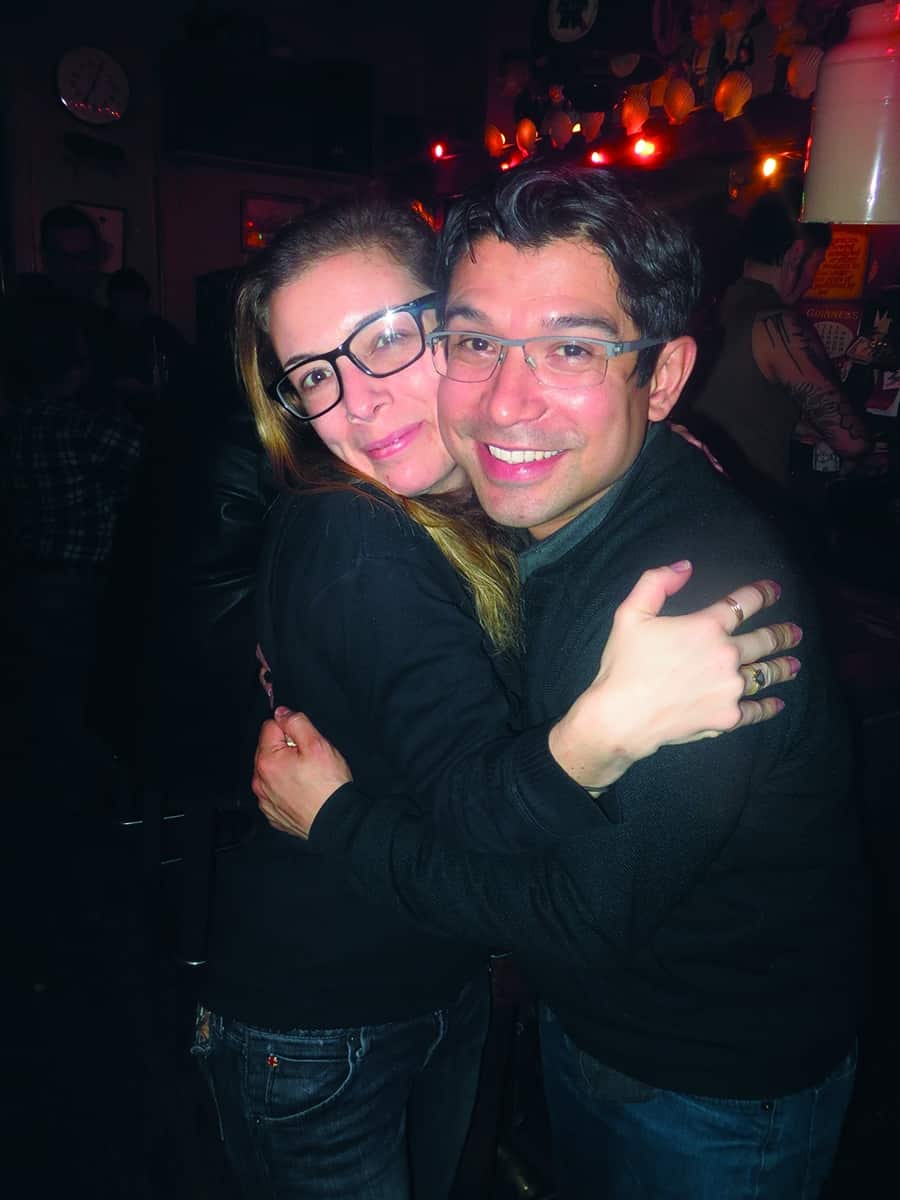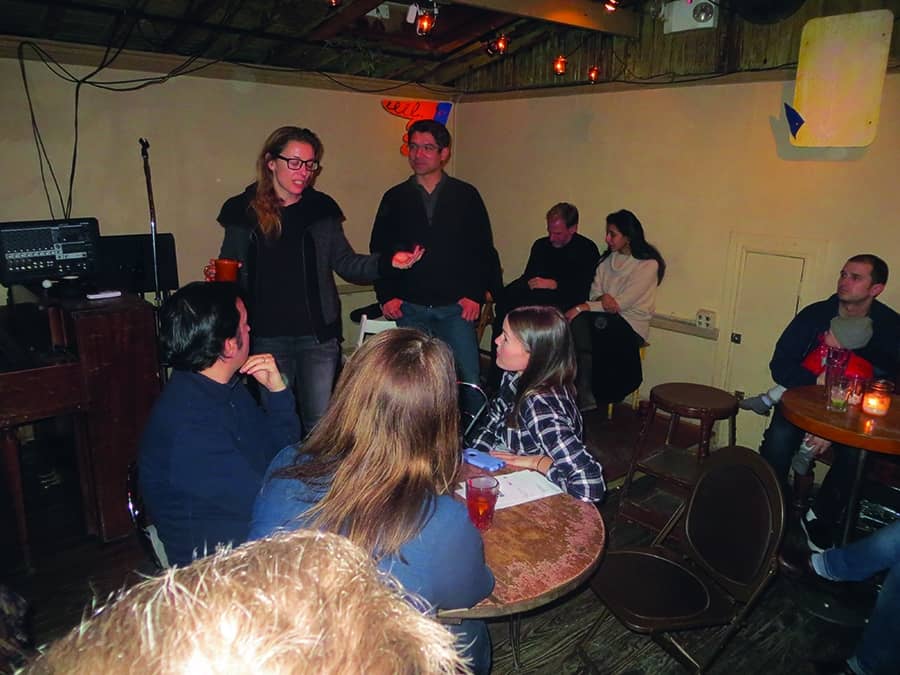
As the unreal nature of a Trump presidency coalesced into the reality of an inauguration, many in Red Hook began to really understand the meaning of the phrase “misery loves company.”
Some traveled to Washington or to Manhattan to take part in the women’s demonstration. Demonstrations end, but the misery remains, and with that in mind, local businesswoman and community board member Victoria Hagman collaborated with councilmember Carlos Menchaca and put together a gathering they called Red Hook Hug.
Word of mouth along with a Facebook page brought about 30 locals to Sunny’s back room on Sunday, January 29 for general commiseration and a few drinks.
After a bit of socializing, people sat in a circle and Victoria started the conversation. “People are hurting,” she said. “After Sandy, many of us came together in groups like this to talk about what just happened to us, and that helped us heal. Well, this is just like Sandy. We have to rely on each other so we can began to move forward.
Let’s all try to be as supportive as we can!”
Menchaca spoke next. “This is hope, right here,” he said as he pointed around the room. “These are the faces of hope.” He spoke of the hurts that different people are feeling, and continued, “as your voice in Red Hook, this kind of meeting is so important to keep me going. The walls that I’m hitting are pretty intense inside the machine of politics. For me, I personally ask that we keep doing this – that we keep hugging.”
Red Hook’s is a neighborhood of people whose talents are as diverse as its make-up, as Carlos noted. “This community has incredible people and incredible talent.
From artists and architects to lawyers, and urban planners, and amazing moms and amazing dads, and a newspaper. Incredible business owners, just great people.”
He urged the community to keep doing getting together like this – in person, not just on Facebook.
At that, the conversation went around the room as people introduced themselves and spoke about their actions and concerns.
Long time Red Hooker and Attorney-in-Charge at NY’s Legal Aid Society spoke of all the rapid-fire legal work that had been done on behalf of those caught in the web of Donald Trump’s executive order banning refugees and travelers from certain countries. The order was issued the Friday prior to the Red Hook Hug, and by Sunday night motions were into a number of courts halting the ban.
“You have a group of people right now that come off of a plane thinking that they are going to go home to their families and they are stopped and they are questioned – and that’s five year-old children, grandparents in wheelchairs, to family members of army veterans that have served this country – and it is reprehensible.”
She went into further detail about the cluelessness of the federal government that put this all into motion, and how they didn’t even know how to respond to orders of judges.
“So here in New York, people weren’t released, while in Seattle they were. So there are still people held here, being detained, and right now in the Eastern District, we have lawyers filing writs of habeus corpus to demand that they be released.”
Carlos is the chair of the Committee on Immigration at the City Council, and of course the idea of New York City as a Sanctuary City was discussed. Kimberly Forte asked that everyone be aware of police actions – as new laws could possibly lead to the deportation of immigrants for seemingly minor crimes. She is also with the Legal Aid Society and offered help to immigrants, as does Carlos.
Others at Sunny’s expressed worries about LGBT rights and the possibility of the erosion of hard won rights. A pending case in the Supreme Court may allow businesses to choose to not serve gay and lesbian customers if they were to choose not to.
Lindsay Campbell who lives on Pioneer Street is a Federal Research Scientist working with the National Forest Service. She expressed a fear of losing her job due to potential budget cuts. She expressed a willingness to volunteer for immigrant rights and other causes.
Other concerns included freedom of the press and the loss of healthcare benefits.
It was pointed out that Red Hook is lucky to have two good elected officials that actually live in the neighborhood and have their ears to the desires and fears of their constituents.
In the end, one might say that while the Red Hook Hug was created as a coping and mental health aid due to the new political climate, some additional positive side effects were achieved.
One of those was a chance for people in the neighborhood to meet each other in person. Not everyone knew each other in person, although many may have from Facebook.
In addition, there will no doubt be an ongoing need for a local group such as this to share resources and facts, and to provide ways for all of us to be more active participants in the political process.
More than one speaker noted that while legal challenges to unjust rules are very important, continued public pressure in the form of protests is equally as important.
As of this writing a second Hug is not yet scheduled – but there is a Facebook page where future activities will be publicized.









One Comment
Red Hook will always be a part of me. I still visit quite often. My brother John wrote many articles for the Star Revenue. Thank you for sharing this article.